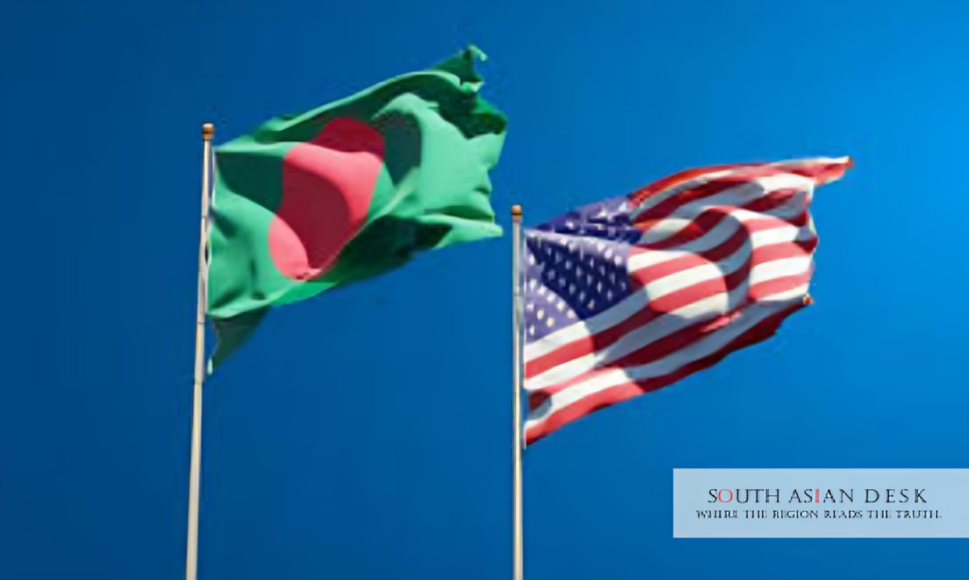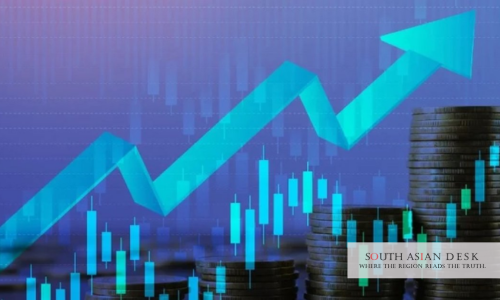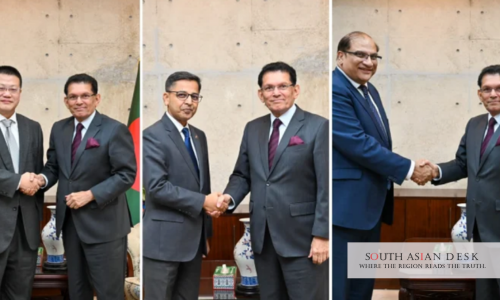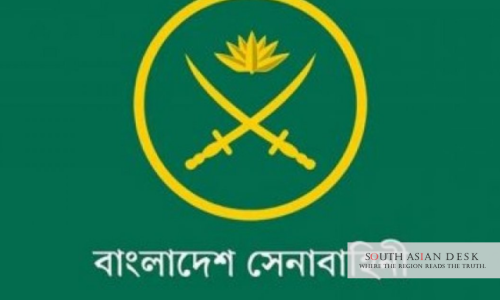The United States has commended Bangladesh’s interim government for overhauling procurement processes in natural resource extraction, a move that could reshape US Bangladesh relations.
The United States Department of State, in its Congressionally-mandated 2025 Fiscal Transparency Report released on Friday, September 19, 2025, highlighted Bangladesh’s interim government’s commitment to making all procurements for natural resource extraction fully open and transparent by suspending previous direct negotiations led by the prior administration. This assessment, covering the period from January 1 to December 31, 2024, underscores evolving US Bangladesh relations 2025 amid political transitions in Dhaka.
In South Asia, where energy security and foreign investment drive regional growth, enhanced fiscal transparency in Bangladesh signals a stabilising force for US Bangladesh relations 2025. By prioritising openness in resource extraction, a sector vital for Bangladesh’s economy, this reform could attract ethical investments, reduce corruption risks, and align with US priorities for accountable governance, benefiting broader subcontinental trade and development amid geopolitical shifts.
Strengthening US Bangladesh Relations 2025 Through Fiscal Reforms
The 2025 Fiscal Transparency Report evaluates 140 governments and entities, with 71 meeting minimum fiscal transparency standards and 26 others showing significant progress. Bangladesh falls into the latter category, reflecting the interim government’s proactive steps despite inheriting a mixed fiscal legacy from its predecessor.
Under the prior administration, Bangladesh made its executive budget proposal and enacted budget publicly available, including online, and provided a reasonably complete picture of planned expenditures and revenues, encompassing natural resource revenues. Information on debt obligations was also accessible, and budget documents incorporated financial allocations to and earnings from state-owned enterprises. However, shortcomings persisted: the end-of-year report was not released within a reasonable period, budget documents deviated from internationally accepted principles, and there was no breakdown of expenditures supporting executive offices. Moreover, the budget did not offer a substantially complete view of revenues and expenditures.
The report notes that the interim government, which assumed power during the review period following a non-political transition, generally adhered to the prior government’s budget recommendations and procedures while launching significant reforms to elevate fiscal transparency. This dual approach continuity paired with innovation positions US Bangladesh relations 2025 on a firmer footing, particularly as the US links such improvements to the effective use of taxpayer-funded assistance.
A spokesperson for the US Department of State emphasised the broader significance: “Fiscal transparency is a critical element of effective public financial management, helps build market confidence, underpins global economic stability, and levels the playing field for US firms.” They added that it”fosters greater government accountability by providing a window into government budgets and spending”and ensures”appropriate use of US taxpayer funds.”
US Bangladesh Resource Extraction 2025: Key Transparency Measures
Central to the report’s positive assessment is Bangladesh’s handling of natural resource extraction, a cornerstone of its economy reliant on gas fields, coal reserves, and emerging blue economy sectors like fisheries and marine resources. The government had long specified criteria and procedures in law for awarding extraction contracts and licences, and appeared to follow them in practice. Yet, information on related public procurement contracts remained limited.
The interim government’s bold intervention marks a turning point in US Bangladesh resource extraction 2025 dynamics. It has moved decisively to render all such procurements fully open and transparent, explicitly suspending all previous or ongoing direct negotiations initiated by the prior regime. This suspension aims to eliminate potential opacity, ensuring future deals undergo rigorous, public scrutiny.
Such measures align with global standards, potentially safeguarding against undue influence in a sector prone to high-stakes investments. The report recommends further enhancements, including making basic information on natural resource extraction awards publicly available and publishing comprehensive details on public procurement contracts. These steps could amplify US Bangladesh resource extraction 2025 collaborations, inviting US firms to participate on equal terms.
Challenges in Audit and Oversight
The transition to the interim government also impacted institutional oversight. Bangladesh’s supreme audit institution did not conduct a full review of the government’s accounts due to the political change but released some summarised findings publicly within a reasonable timeframe. However, it falls short of international independence standards, limiting its capacity for robust accountability.
To address this, the US report urges ensuring the audit body meets global benchmarks, with sufficient resources for timely access to the entire annual executed budget. It also calls for publishing timely audit reports featuring substantive findings, recommendations, and narratives. These gaps, while noted, do not overshadow the interim government’s overall progress, which the US views as a foundation for sustained US Bangladesh relations 2025.
Background
Bangladesh’s interim government emerged in August 2024 following widespread protests that ended the long-standing Awami League administration, marking a pivotal shift in the nation’s political landscape. One year on, as of August 2025, Dhaka has focused on repairing ties with key partners, including the United States, which had grown strained under the previous regime due to concerns over governance and human rights.
Historically, US Bangladesh relations 2025 build on decades of cooperation, with the US investing over $8 billion in aid since 1971 to support development, security, and economic resilience. In 2024, bilateral trade reached $12.4 billion, positioning Bangladesh as the US’s 38th largest goods supplier. Yet, recent US policy adjustments under the Trump administration, including tariffs on imports and selective aid freezes in January 2025, have tested these bonds. The fiscal transparency commendation offers a counterpoint, highlighting mutual interests in ethical resource management.
In South Asia, natural resource extraction remains contentious, with Bangladesh’s gas and coal sectors facing scrutiny over environmental impacts and foreign involvement. The interim reforms echo regional trends, such as India’s push for transparent mining auctions, potentially fostering cross-border energy dialogues.
What’s Next
As US Bangladesh relations 2025 progress, implementing the report’s eight recommendations, ranging from timely end-of-year reporting to empowered audits, could unlock enhanced US support and private sector engagement in resource extraction. With the interim government eyeing elections, sustained transparency will be key to cementing these gains.
Published in SouthAsianDesk, September 20th, 2025
Follow SouthAsianDesk on X, Instagram, and Facebook for insights on business and current affairs from across South Asia.






